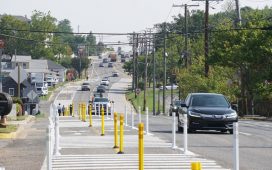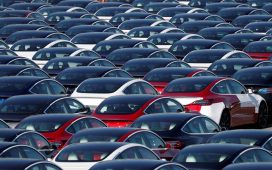Auto sales reportedly returned to a normal level in May after spiking for two months when consumers sought to make purchases before new tariffs set in.
Wards Intelligence reported Tuesday (June 3) that after a “tariff surge” in March and April, U.S. light-vehicle sales dropped to, or slightly below, pre-tariff expectations in May.
Part of the slowdown was caused by inventory levels, which dropped during the two-month surge and may be slow to recover, Haig Stoddard, principal analyst, forecasts at Ward Intelligence/Informa, wrote in a Tuesday executive summary.
“That dynamic likely continues not just in June, but into Q3, as most automakers do not currently appear anxious to raise production levels enough to fully replace declining stock levels,” Stoddard wrote.
The 1.2 million cars sold in the U.S. in May was roughly in line with the figure seen last year, following a two-month rush to buy vehicles ahead of tariffs, The Wall Street Journal reported Tuesday, citing data from J.D. Power.
The amount of money Americans spent on new vehicles in May — about $53.8 billion — was 7% higher than it was a year earlier, according to the report.
Although consumer confidence has slumped due to inflation and tariffs, the mood is better on dealer lots, the report said.
Reuters reported Tuesday that the drop in sales after the two-month surge was the biggest seen in five years.
The seasonally adjusted annual rate of light vehicles fell by about 1.6 million — from 17.25 million in April to 15.65 in May — which was the steepest decline since the pandemic began in April 2020, according to the report.
It was reported in May that the average transaction price had risen because of a decline in sales incentives amid talk of tariffs. New-vehicle prices had been mostly flat since the COVID-era shortages ended in April 2023.
In March, it was reported that American car buyers were scrambling make purchases before tariffs set in. Some dealers said at the time that uncertainty, at least in the short-term, could be good for business, leading more customers to visit their lots and buy their cars out of stock.








